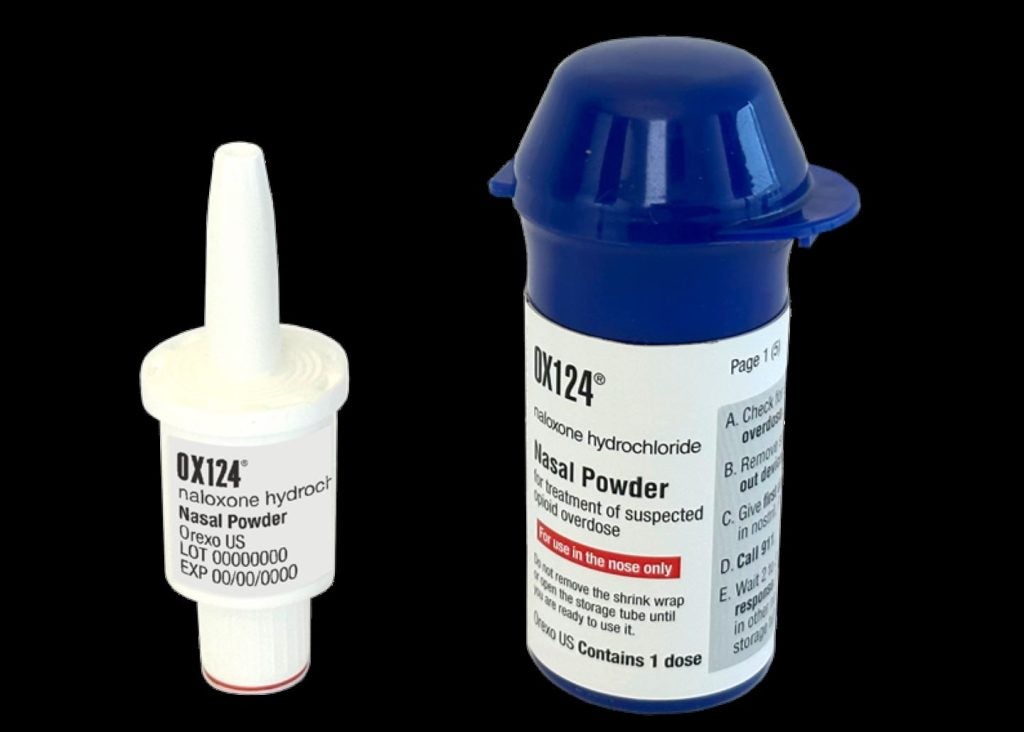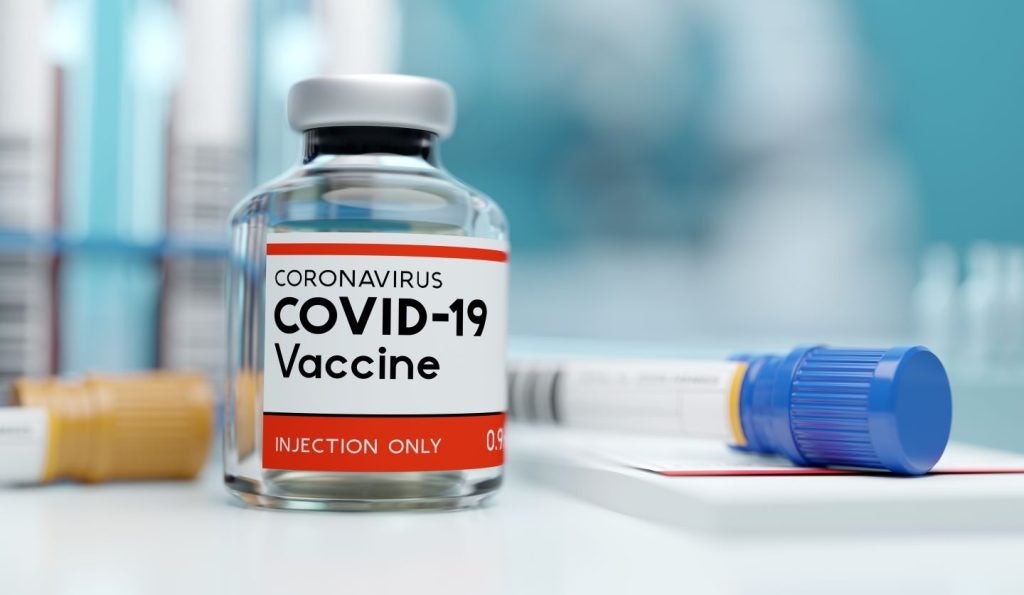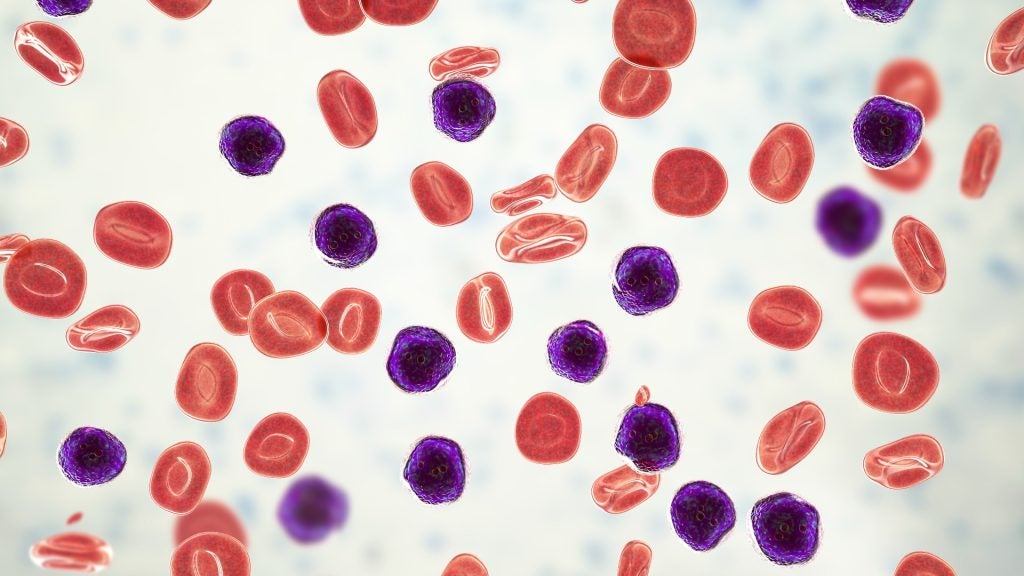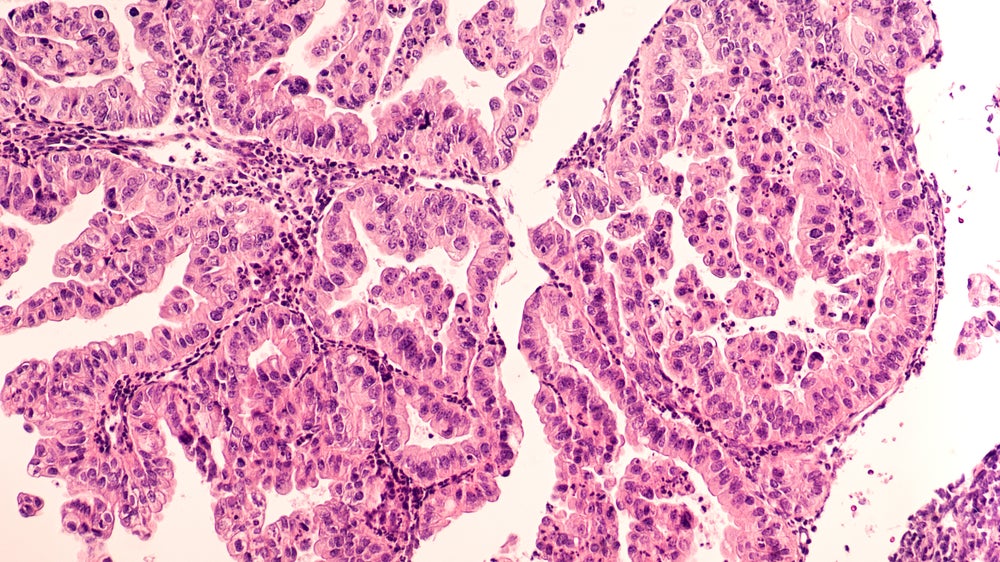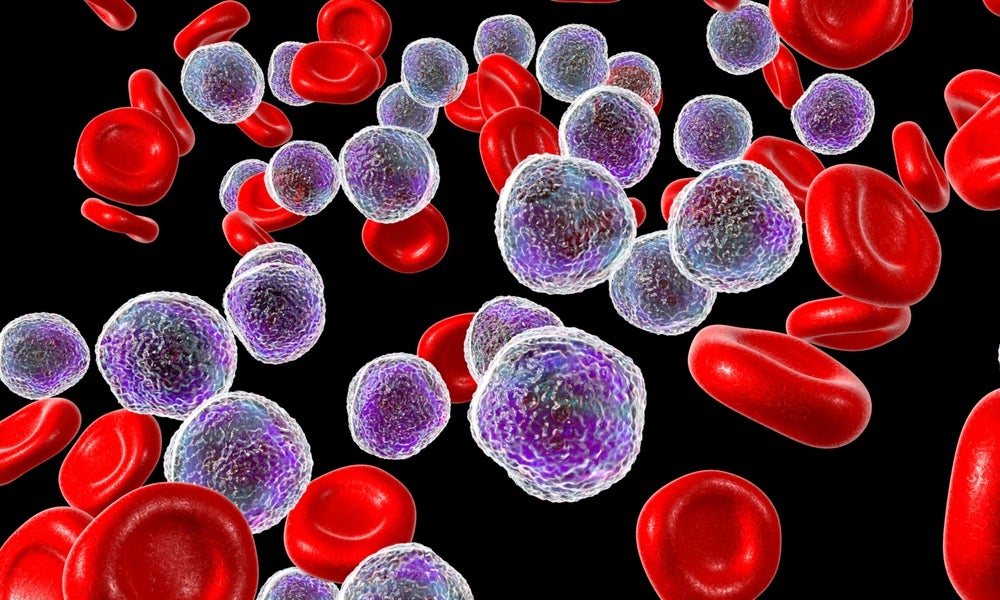The US Food and Drug Administration (FDA) has granted breakthrough therapy designation (BTD) to the investigational therapy epcoritamab to treat follicular lymphoma.
The European Medicines Agency (EMA) has validated a Type II application for epcoritamab for the same indication.
Co-developed by AbbVie and Genmab, the subcutaneous IgG1-bispecific antibody, marketed as Epkinly in the US and Tepkinly in the EU, is being evaluated as a new therapy for follicular lymphoma. It has regulatory approval for treating certain large B-cell lymphomas (LBCL).
AbbVie had entered into the $750m cancer therapeutics deal with Genmab to develop and commercialise antibody therapies back in 2020. In May 2023, the FDA granted an accelerated approval to Epkinly to treat relapsed or refractory (R/R) diffuse large B-cell lymphoma (DLBCL) in adult patients. Epkinly has generated $14m in sales so far this year, according to AbbVie’s Q3 2023 financial results. According to GlobalData’s Pharma Intelligence Center, the drug is forecast to generate $2.3bn in sales in 2029.
GlobalData is the parent company of Pharmaceutical Technology.
Follicular lymphoma is a slow-growing type of non-Hodgkin lymphoma (NHL), a cancer of the lymphatic system, characterised by the abnormal growth of B-cells in the lymph nodes.
These regulatory updates are supported by positive data obtained from the international randomised Phase I/II clinical trial of epcoritamab. The study evaluated the efficacy and safety of the therapy in 128 adult patients with relapsed, progressive, or CD20+ mature B-cell NHL, which includes follicular lymphoma. Detailed findings will be shared at the Annual Meeting and Exposition of the American Society of Haematology (ASH) in December 2023.
In the announcement accompanying the updates, therapeutic area head for haematology at AbbVie Mariana Cota Stirner said, "The FDA granted BTD and validated European application are an important step in our commitment to improving the lives of patients with relapsed/refractory follicular lymphoma, a complex blood cancer with limited treatment options."
According to the 27 November 2023 press release, ongoing Phase III trials are assessing its effectiveness as a monotherapy and in combination for various haematologic malignancies, including relapsed or refractory LBCL and follicular lymphoma.





